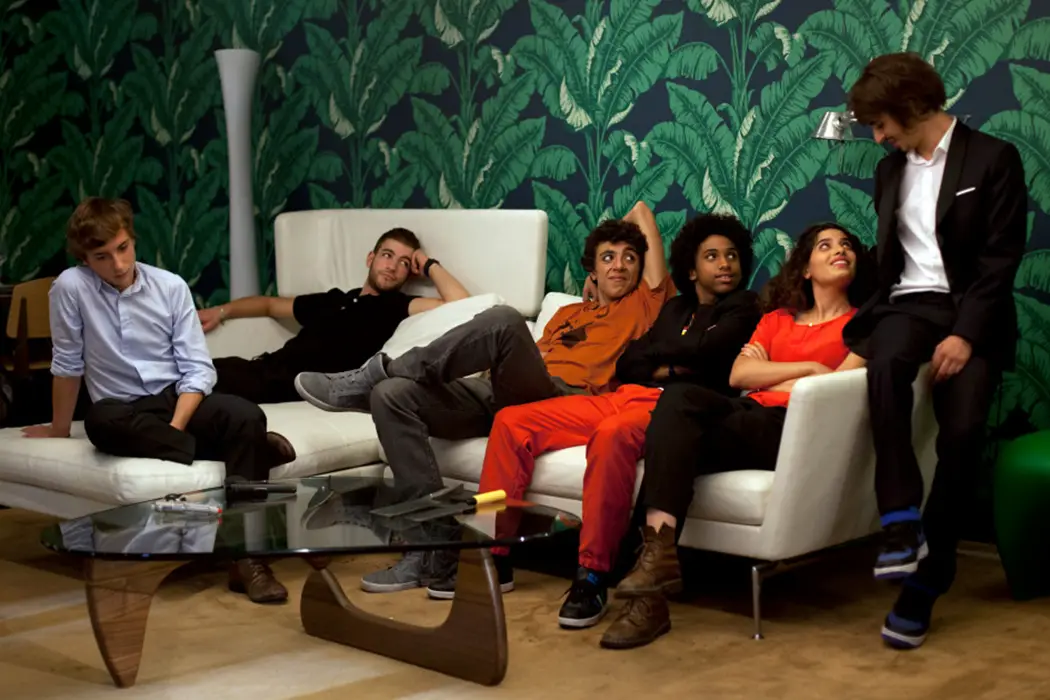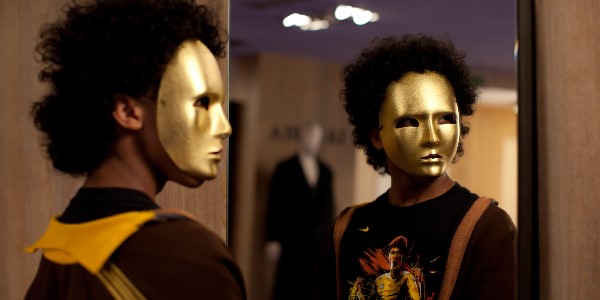NOCTURAMA: We Are Our Own Worst Enemies

An Instructor of Communication Studies at Ball State University, Spencer…
When George A. Romero released Night of the Living Dead in 1968, he catapulted a genre of flesh-eating zombies onto our screens. And for decades, we have soaked up the gore, the blood, and the chaos, even when the films themselves did not reach the same historic heights as the one that started it all. After all, what is more horrific than a mob of undead civilians endlessly lurching after us until we, too, are caught and end up exactly like them?
Little did we know at the time, but Night of the Living Dead tapped into a basic human fear that lives on today: not that we would have our innards ripped out and devoured, but that in time, we would simply become a nameless face in the crowd.
In Bertrand Bonello’s Nocturama, we are presented with the same predicament – only this time, with a contemporary twist. Our leading players come in the form of young vigilantes. Fed up with the current state of political and social affairs in Paris, these nine individuals plot out a terrorist attack, which include murder and the bombing of the Ministry of Interior.
Their motives are seemingly unclear, but the radical acts they commit feel like an attack on a country that they felt had been in a stupor for too long. When they reconvene in a lavish shopping mall, questions of humanity and morality begin bubbling to the surface.
Radical Meets Reality
Nocturama casts a hypnotic spell in its first hour. It opens with an overhead shot of Paris; as the camera lazily floats over the midday bustle of people’s day-to-day lives, another sound begins to hum over another ordinary day – a helicopter. In many situations, this would be a nondescript sound, but it slowly gets louder and louder, until the film cuts quickly to its anti-heroes.
With very little context for what they are doing, we follow them in various meet-up places: subway cars, cafes, parking lots. They share text messages with one another, ensuring that no one else knows what their plot is. Interestingly, we as audience members may not even know what their plot is. All we get are brief exchanges between these seemingly anonymous characters – for a long time, even their names are unknown. All of this works to keep us in the dark, even when we seem to be in on their plan.

Then, of course, their plan goes off with only minor hitches. Buildings and cars are blown up, and a statue of Joan of Arc is set on fire. When they all reconvene at a shopping center that was closed in the wake of the terrorist attacks, they count their losses (one member of their party was shot by a security guard) and impatiently wait to hear about the damage they had committed.
Even until this point, nothing is exactly clear. Why did they do it? Did they want people to die? What is their long-term goal? We are as clueless as they seem to be – perhaps they are merely speaking out against a social climate that seems indifferent. Perhaps they were disillusioned teens looking to get attention.
Bonello consistently plays with this relationship without ever giving us answers. For the most part, these teenagers (whose names we slowly start to learn but quickly forget) journey through this abandoned mall; they shoplift, play with toys as though they are children, and in one quiet scene that speaks volumes, one character comes face to face with a mannequin dressed in the exact same outfit as him. This moment crystallizes a disturbing reality: that even those working to overthrow the government for whatever reason will still fall prey to looking like everyone else.
A Living Nightmare
As the characters hole up in this mall, though, it becomes clear that they deeply care about the heinous acts of terror they unleashed. And it is not whether or not people were harmed, but whether or not the people of Paris are talking about it, if they are scared that a crime like this will happen again.

Yet around every corner is a screen looking back at them; they turn on every television in the mall, every screen tuned onto the news. They pour over the media coverage – all the while lamenting that they have no phone service, so that they can read more about what people on the outside are writing about the crimes. This deep-seeded obsession takes a turn for the brutal in the film’s last act – an act that distills this dystopian vision that parallels Night of the Living Dead in more ways than one.
Nocturama: Conclusion
Nocturama works so well because it does not spoon-feed us any answers. In fact, by the film’s end, many may be left with more questions than answers. And perhaps that was Bonello’s point all along. When the undead start to rise in Night of the Living Dead, its living characters are left grappling with why this is happening.
And although Nocturama is not explicitly about the undead (there is no flesh eating here), its message rings stunningly true to Romero’s work. In an age of political and social unrest, these teenagers perhaps only wanted people to wake up and pay attention to what is going on in the world. And although they may be living in their very own stupor of radical idealism, their efforts may not necessarily be in vein.
But perhaps the relationship between the living and the undead is closer than we initially believed.
With that, I turn it to you! How does Nocturama’s exploration of modern-day revolutionaries succeed (or fail) as commentary of our current social climate?
Nocturama is available to rent and watch on various streaming platforms, notably Netflix.
Does content like this matter to you?
Become a Member and support film journalism. Unlock access to all of Film Inquiry`s great articles. Join a community of like-minded readers who are passionate about cinema - get access to our private members Network, give back to independent filmmakers, and more.
An Instructor of Communication Studies at Ball State University, Spencer enjoys the simple things in life: his cat (Laura Dern), Laura Dern (the actress), and snagging any chance he can get to watch movies. In his spare time, he champions Kristen Stewart and writes think-pieces about why Taylor Swift is a pop music mastermind.













